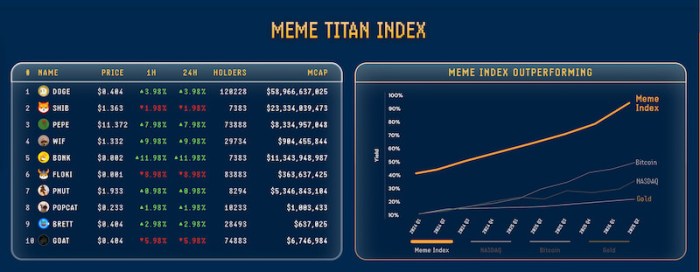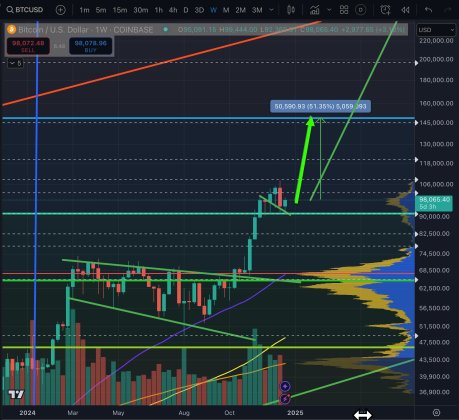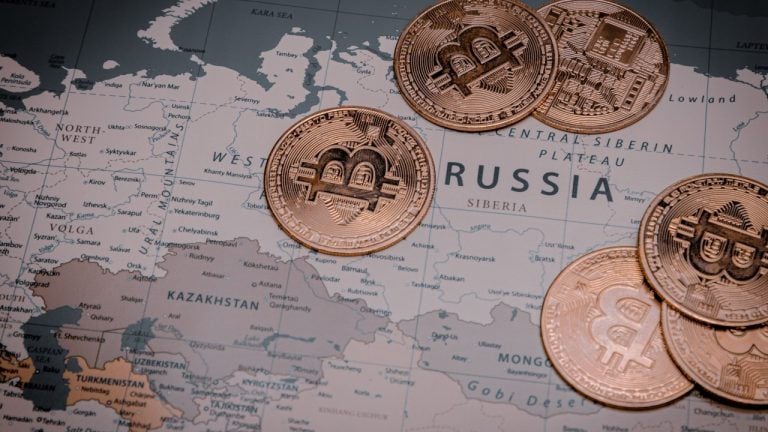In a pair of recent essays, political scientist Ian Bremmer contends that Big Tech companies will reshape the global order, while FP columnist Stephen Walt’s friendly rejoinder is that states will remain predominant. We take a third view: Not only has technology already changed the global order, but it is also changing the nature of both companies and states themselves. The 21st century belongs not to China or the United States—nor to tech companies as traditionally understood. It belongs to the internet.
This is true for many reasons, of which perhaps the most important is the rise of decentralized protocols like Bitcoin and Ethereum that are controlled by neither states nor companies. To Bremmer’s credit, he does mention them, but he still underrates their importance. Many of the global technology firms’ weaknesses both he and Walt discuss—that they’re typically domiciled in the United States or China, that they rely on those jurisdictions for contract enforcement, that they don’t have a state’s political legitimacy, and that their exercise of power has already caused a global backlash—are addressed by the introduction of crypto protocols, which can safeguard property and execute contracts beyond the boundaries of traditional nation states.
But technology’s challenge to traditional geopolitics goes beyond crypto protocols, tech companies, and even digital space itself, as it has begun reshaping the physical world. Here are 10 ways in which we are transitioning from an age of geopolitics to one of technopolitics.
1. Network proximity is now on par with physical geography
Traditional geopolitics of the Mackinder school of thought concerns itself with the eternal location of territorial powers. Russia and Japan might have different ideologies over time, but their geography remains constant—or so the argument goes.
However, the internet is adding a new dimension to this. It is not merely a passive data layer that states enable and contest but a new kind of geography comparable in scope to the physical world. Think of it as a digital Atlantis—a new continent floating in the cloud where old powers compete and new powers arise. Within this cloud continent, the unit of distance between two people is not the travel time between their positions on the globe but rather the degrees of separation in their social networks.
This means anyone can put themselves near anyone else by simply following them on social networks or keep others away by blocking their accounts on those same networks—no plane ticket required. Any floating entity within this cloud continent can likewise attempt to interact with any other by pinging the right IP addresses, for the purpose of anything from transactions to cyber invasions—no preexisting proximity required.
Every citizen of the old world, provided they have internet access, can simply become a citizen of the new by telecommuting via their screens to spend a few hours in the cloud each day, as billions of people routinely do—no physical immigration required. Encryption serves as the digital equivalent of physical fortifications in the cloud, allowing any user to defend their digital property without resorting to traditional munitions—no physical force required.
Bottom line: Network proximity is now on par with physical geography, and basic geopolitical assumptions about citizenship, migration, power projection, and the use of force need to be rethought for the digital world.
2. National currencies will face digital monetary competition
Think about what happened with newspapers: First, they all went online. Then, Google News indexed them all. Last, local papers found that their geographic monopolies had evaporated now that it was no longer necessary to distribute physical newspapers via trucks.
A similar fate will befall national currencies. Already, national currencies compete with cryptocurrencies because individuals and institutions hold digital wallets filled with various assets that can be traded against one another. This will only accelerate once central bank digital currencies (CBDCs) are introduced. Every asset will be traded against every other asset in a gigantic table we call the “defi matrix” (defi is short for decentralized finance), including CBDCs themselves.
We are about to enter an age of global monetary competition, where national currencies must earn their place in someone’s wallet portfolio every hour of every day, even among citizens of their own countries. The digital version of the Japanese yen will be plunged into head-to-head global competition with the Swiss franc, the Brazilian real, and any other asset with an open capital account, including Bitcoin. Everyone becomes a foreign-exchange trader, all the time, and only the best national currencies—or cryptocurrencies—are ever held by anyone.
Rather than the current environment of unchecked inflation and competitive devaluation, the defi matrix imposes a new kind of discipline on national currencies, as billions of people make individual choices regarding which currencies to hold—or not hold.
3. The remote economy has created a talent market for citizens
Walt asserts that because proponents of stateless digital techno-utopias still need to live somewhere, a state ultimately has control over them. But in a competitive marketplace of jurisdictions where somewhere can be anywhere, no single government has as much authority as people think.
Places as varied as Estonia, New Zealand, Singapore, Taiwan, Portugal, the United Arab Emirates, and Chile are all vying for newly mobile talent through “nomad visas” and other similar programs. After all, many aspects of life are already in the cloud (like email, education, and e-commerce) and many others are partially digitized (like finance and foreign incorporation). Government is what economist Mancur Olson famously termed a “stationary bandit,” extracting rents in exchange for providing benefits.
But so long as people can afford to or are allowed to leave, they have more options than ever for a more hospitable host state. Just ask the 9 million American expatriates scattered around the globe, a figure that has doubled over the past decade. The Great Migration is on.
4. Bits are finally reshaping atoms
Over the last decade, entrepreneur Peter Thiel, developer J. Storrs Hall, and economist Tyler Cowen made compelling cases that digital technology had advanced while physical technology remained stagnant. But if we think about drones, robotics, self-driving cars, brain-machine interfaces, vaccine passports, gene-editing tools like CRISPR, and mRNA vaccines—as well as the return of nuclear power, the space race, and supersonic aircraft—we’re finally seeing a reinvigoration of innovation in the physical world. Once something works online, it can be printed out anywhere and scaled faster than ever before.
This is why Walt’s argument that states necessarily control the “physical environment”—a concept known as “territoriality”—may not actually hold: A government that doesn’t understand the digital may not be able to control the physical. Less capable states will attempt to maintain control by making futile, reactionary attempts to regulate emerging physical technologies back into the garage from whence they came while more capable jurisdictions will embrace them.
In other words, it’s short-sighted to think technology will remain indefinitely confined to the digital realm. States will need to reinvent themselves as masters of new technologies, both digital and physical—or fall behind and witness their best citizens leave for jurisdictions that do.
5. Cloud-based regulators are outcompeting state-based regulators
Traditional taxi regulators might do cursory inspections of medallion holders. But they do not regulate their drivers as aggressively as Uber, Lyft, Grab, Gojek, and DiDi do. That is, they do not GPS track every ride, ensure both driver and rider can complete a transaction, record star ratings from both parties, and use the full panoply of tools available to a modern “cloud regulator.”
In a real sense, these tech companies are more modern regulators than the paper-based models of the 20th century. As such, they’ve suffered significant backlash from legacy actors that want to preserve their control over the system, perhaps best exemplified by ongoing attempts to legislatively squash the square peg of the 21st-century sharing economy into the round hole of 20th-century lifetime employment.
This will prove a rearguard action, however.
First, these companies are, in important instances, already achieving state ends faster than the state. For example, GoTo Group, parent company of the ride-sharing service Gojek, now powers more than 2 percent of Indonesia’s over $1 trillion GDP, creating millions of jobs and bringing nearly 2 billion annual transactions into the taxable formal economy. This gives Gojek a massive base of public support.
Second, these companies won’t remain companies forever—they’ll be phased out by protocols that split the upside with their users. From a political standpoint, anti-technology activists have only been able to muster slim and contentious margins of support for new regulations because app workers did not profit as much from the rise of the sharing economy as app developers—giving a wedge for class actions.
However, the next step is the full Web3-based decentralization of online marketplaces and sharing economy services, which is already well underway via peer-to-peer trading of cryptocurrencies (so-called decentralized exchanges). These new forms of transnational regulation, where app users have a stake—and a say—in how their platforms are run, will expand beyond cryptocurrencies to the peer-to-peer exchange of other goods and services over time.
Why? Because the U.S. Food and Drug Administration was set up to regulate Merck and Pfizer, not 1 million biohackers; the Federal Aviation Administration was built for Boeing and Airbus, not 1 million drone hobbyists; and the U.S. Securities and Exchange Commission was created to go after Goldman Sachs and Morgan Stanley, not 1 million Web3 developers. The people running these institutions typically have career tenure; they were not democratically elected and are not easily fired. They are thus not obviously accountable to the public they claim to serve.
Crypto protocols, by contrast, allow millions of active participants—both customers and producers—in a market to develop decentralized regulatory mechanisms that avoid both the perils of captured state regulators and corporate self-regulators. It is only a matter of time before cloud-based entities emerge for decentralized regulation of industries beyond cryptocurrencies. Importantly, these bodies will be truly global and boundary-spanning, unlike today’s geographically constrained national regulators.
6. Property rights have become encryption
The state’s conception as the legitimate guardian of private property extends back to at least philosophers Thomas Hobbes and John Locke. But cryptocurrencies challenge this view as they establish a full-fledged theory of digital property rights outside the state. A full exposition of why this is the case would get technical, but in short: No amount of violence can solve certain kinds of math problems, particularly those devised for secure encryption.
When property becomes a password, all our intuitions change. Soviet Premier Joseph Stalin famously asked: “How many divisions has the Pope?” But in the age of encryption, it’s not about how many divisions a state has to defend its property. It’s about how much long division it would have to do to seize yours.
7. International rule of law is becoming rule of code
After three decades of bombings and invasions, sanctions and surveillance, the United States can no longer credibly claim to be the impartial arbiter of a rules-based international order. Obviously, any such rules are very clearly not applied to itself. Of course, China can’t claim to be a defender of a rules-based order either.
Yet the goal itself is desirable—small countries would prefer some kind of order rather than being at the mercy of one power (the United States) that gives international rule of law only lip service and another power (China) that doesn’t even do that.
For this, at least in the commercial realm, we believe they will increasingly turn to what we call “rule of code.” Whether Democrat or Republican, Chinese or American, the Bitcoin and Ethereum blockchains are the same for all and treat all the same. Intellectual property is already being codified on blockchain ledgers, beginning with nonfungible tokens, bringing transparency to what has been a fragmented legal process.
Property rights themselves can be digitized through geographic information system (GIS) mapping and land cadastration (surveying and parceling of property), eroding the bureaucratic opacity that favors predatory governments. And rather than subject themselves to expropriation risks, investors could demand governments put up collateral codified in smart contracts that would be forfeited in default.
We are still in the early days, but enforceable international law may become synonymous with decentralized smart contracts, at least in the context of international trade. And beyond trade, crypto protocols provide transnational protection for civil liberties like freedom of speech and privacy. This is not yet the entirety of what the rules-based order purports to protect, but the ability to guarantee free speech and free markets to anyone with an internet connection is a major step forward.
8. Web3 is addressing global inequality by sharing the reward—and the risk
While physician and professor Hans Rosling and others have documented how global inequality is actually falling, the issue remains a hot topic for Western countries, which have seen their net worth remain stagnant even as others (particularly countries in Asia) rise.
The most promising way to resolve this may be via Web3 protocols, which can be thought of as a variant of universal basic income that splits the reward—and the risk—of building a giant tech service across millions of volunteer asset holders. Put another way, if the roughly $5 trillion total market cap of Alphabet, Meta, Apple, Amazon, and Microsoft were split across a billion users to give them around $5,000 each, they’d be much more supportive.
Most of the funding for Web3 protocols has not come from established tech companies. Bitcoin was coded by a pseudonymous founder who took no venture capital investment. Ethereum was started by a college dropout who crowdfunded the start-up capital online. And with the rise of decentralized finance, there is now an incredible variety of financing mechanisms to allow smart people with no money to find smart people with money to build tools that allow all people to make money. And that is how Web3 may accomplish what no antitrust action or arbitrary seizure could.
9. Companies, cities, currencies, communities, and countries are all becoming networks
We used to think of books, music, and movies as distinct. Then they all became represented by packets sent over the internet. Similarly, today we think of stocks, bonds, gold, loans, and art as different. But all of them are represented as debits and credits on blockchains.
We should start thinking of collections of people—whether communities, cities, companies, or countries—as cohesive agents unto themselves, less constrained by territoriality and with different layers aligned with one another in shifting combinations. Physical governments can, for example, integrate with digital networks, and companies can run as apps on a city state’s dedicated blockchain.
El Salvador’s Bitcoin City, Wyoming’s decentralized autonomous organization (DAO) law, and projects we’ve backed financially like MiamiCoin and NYCCoin are early pieces of this future. In El Salvador, President Nayib Bukele has put his country on the map by making Bitcoin a national currency and is attracting global investment for a special economic zone he calls “Bitcoin City.” In Wyoming, the new DAO law provides rules for fully digital vehicles to be put on an equal playing field with legacy, paper-based corporations, thereby enabling many corporate actions to be automated. And Miami Mayor Francis Suarez and New York City Mayor-elect Eric Adams have embraced the concept of City Coins, which give their citizens a digital currency that yields Bitcoin.
In each of these cases, cities and states are fusing with cryptocurrency networks to provide their citizens with new services.
10. Power is decentralizing away from the United States and China
About 75 percent of the world’s population, more than 60 percent of global GDP, and around 50 percent of all billionaires are neither Chinese nor American. Those two superpowers may well fight, but it’s not obvious if the rest of the world will want to align with either party. Indeed, with the rise of decentralized protocols, we anticipate that many states in the middle may decide to use Bitcoin, Ethereum, and other chains for China- and U.S.-resistant communication and financial transaction channels.
That is, in addition to building national stacks (data and app ecosystems) for domestic transactions and communications, countries may use neutral protocols for international transactions and communications. This gives every country a choice: Rather than being forced to take sides in a new Cold War, they can update the “Non-Aligned Movement” to form an “Aligned Movement,” where they rally around their joint sovereign stakes in Web3 protocols to facilitate cross-border trade. Early signs of this are already visible with Latin American countries adopting Bitcoin. Not incidentally, such protocols will also command the respect (and investment) of many millions of Chinese and American citizens.
Concluding Paragraph :
Put all these pieces together, and rather than a unipolar Pax Americana or a bipolar “New Cold War,” the future will be a decentralized race to the top as countries, cities, companies, and communities—physical and virtual—compete to attract talent and capital. We do not argue that states are irrelevant; rather, they will be more relevant if they embrace the arrow of history and work with the network and less relevant if they attempt rearguard actions against it. Such is the nature of great protocol politics.
What does that mean for the United States? Today, the United States is experiencing a relative decline in strength across economic and military axes. Its global role is more a function of its victories in 1945 and 1991 than its capabilities in 2021.
Yet precisely because it lacks the force to change this downward trajectory overnight, it has more reason to support a decentralized order, where societies and individuals freely choose to ally with high-quality “Made in America” protocols—digital rules that bind others just as they bind those in the United States or China. Reinforcing the Biden administration’s “Build Back Better” mantra, Web3 protocols could also reduce polarization and inequality by giving citizens more of a stake in the system—as is already underway with experiments in New York City, Miami, and Wyoming.
The United States could also continue on its current path and try to fight China, Bitcoin, and the internet at the same time. But if it chooses that route, to paraphrase Bremmer, the unrealistic utopians wouldn’t actually be the technologists—they’d be the politicians.
[link] [comments]

You can get bonuses upto $100 FREE BONUS when you:
💰 Install these recommended apps:
💲 SocialGood - 100% Crypto Back on Everyday Shopping
💲 xPortal - The DeFi For The Next Billion
💲 CryptoTab Browser - Lightweight, fast, and ready to mine!
💰 Register on these recommended exchanges:
🟡 Binance🟡 Bitfinex🟡 Bitmart🟡 Bittrex🟡 Bitget
🟡 CoinEx🟡 Crypto.com🟡 Gate.io🟡 Huobi🟡 Kucoin.




















Comments